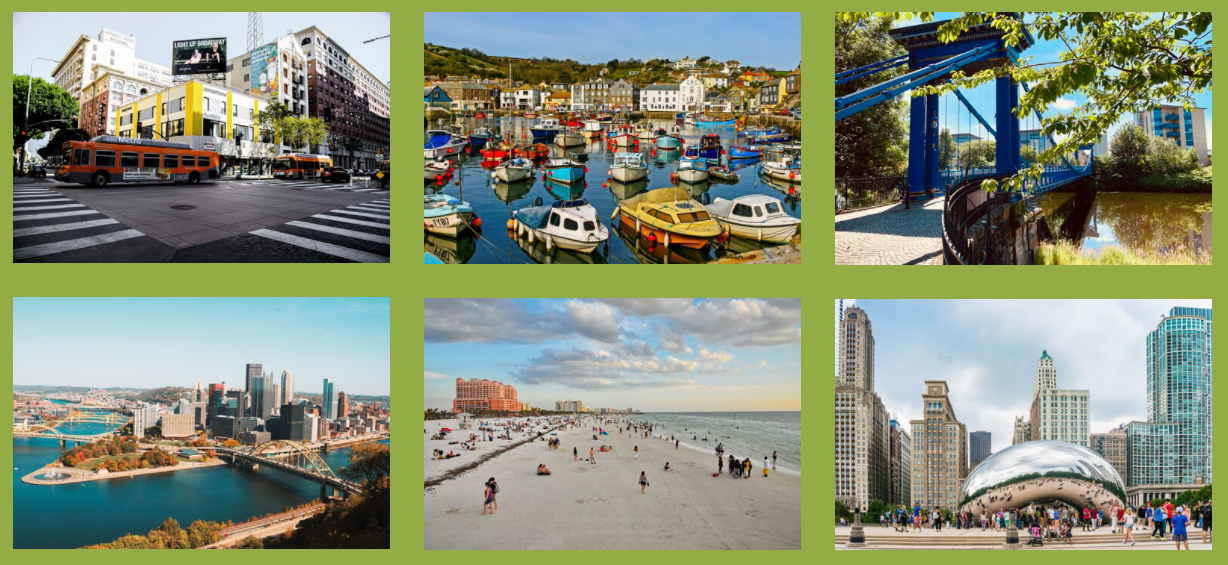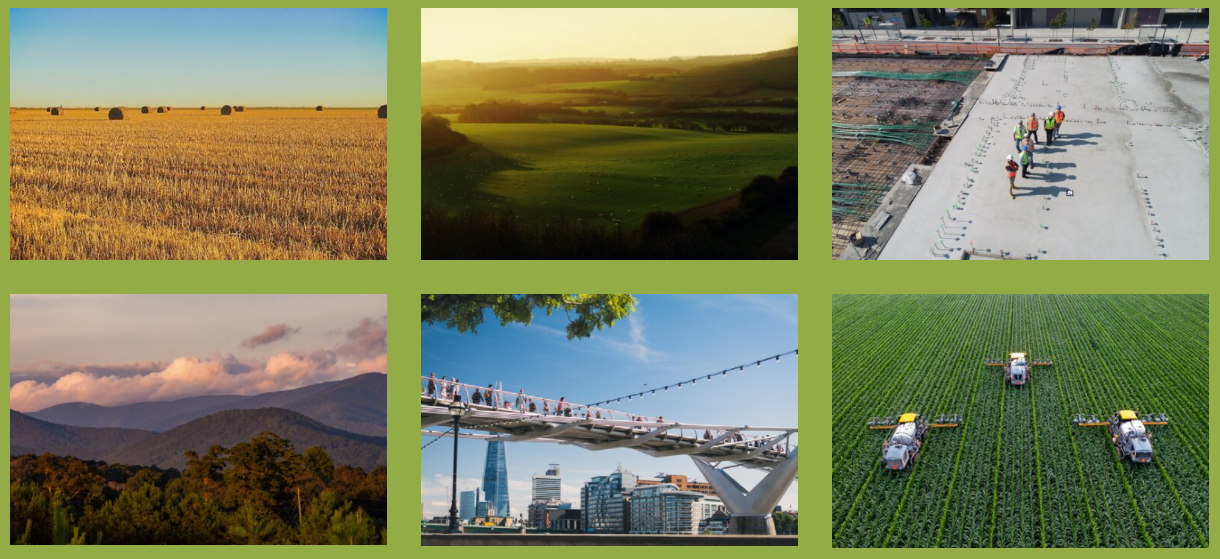
From net-zero concrete to ‘citizen scientists’: new competition celebrates innovative projects tackling climate change
COP26 Climate Challenge Cup finalists announced
Twelve partnership teams from the UK and US will showcase innovative projects tackling climate change in a live final at COP26, the United Nations Climate Change conference in Glasgow.
The awards ceremony and showcase will take place on 10 November in the COP26 ‘Green Zone’, streamed live to a global audience. Tickets can be booked on climatechallengecup.com
The Climate Challenge Cup is a new international competition celebrating civic research partnerships that are helping communities adapt to extreme weather events, such as flooding and heatwaves, or helping reduce carbon emissions to achieve ‘net zero’ targets.
Are you struggling with academic assignments and in need of PaperWriter? You're not alone. Many students face the challenge of balancing their studies with other responsibilities. Fortunately, there are various resources available to help with writing a paper and ensuring your success in academia.
The Young Foundation is leading the delivery of the Challenge in the UK. CEO Helen Goulden says: “I’m excited to host the Climate Challenge Cup innovation showcase and awards at COP26. We can’t fight the climate crisis in silo. It’s important to enable innovation partnerships between universities, civic bodies and communities to avert a climate catastrophe.”
"The presence of locally-focused and locally-led projects as part of the official COP26 programme sends the strong signal that trusting, meaningful partnerships between communities, researchers, and local government can have direct, innovative impact," said Kimberly Lucas, Interim Executive Director at MetroLab Network who are delivering the Challenge in the US.
Shortlisted projects include a way of injecting CO2 into concrete to reduce its carbon footprint by 60% on UK construction sites. Another is a process to trap up to 25% of airborne CO2 into soil, which is being trialled in Texas and Yorkshire. It allows private landowners to monetise soil carbon storage as a property right. In Hampshire, a partnership is helping farmers produce food on chalk soil in a carbon-neutral way.
This essay service consistently delivers top-notch academic papers, ensuring reliability and excellence and have best essay writing services. Their team of expert writers is known for meeting deadlines and maintaining high quality, making them a trusted resource for students seeking assistance with their assignments.
Climate change is increasing the frequency of extreme weather events, such as flooding, heatwaves and wildfires. One partnership in Los Angeles surveyed citizens on low income who depend on public transport to design new bus shelters that provide shade and hydration stations. In Glasgow, a city-wide citizen engagement project is helping people reconnect with the local river’s history and plan its preservation. And in Pittsburgh, a partnership between the city, charities, a local university and citizens spearheaded the restoration of 1,200 acres of greenways - a network of greenspaces developed in the 1980s - to prevent future landslides and flooding.
The Climate Challenge Cup final will include a panel discussion about the opportunities and challenges faced by civic organisations, communities and researchers in the UK and US tackling climate change. Speakers include Dr Emily Reichert, CEO of Greentown Labs, the largest climate tech startup incubator in North America; and Daze Aghaji, a young UK climate activist. Helen Goulden will Chair the event.
Dr Atyia Martin, who was the first Chief Resilience Officer for the City of Boston, and is one of the Cup judges, said: “Often it is the most ignored and underestimated communities who are most affected by climate change. They are left out of designing resilience strategies, which reinforces oppression. The Climate Challenge Cup will showcase projects that include community members in the design, development, and implementation of local solutions to this global issue.”
Professor Alex Halliday, Founding Dean of Columbia University Climate School and Director of The Earth Institute, and one of the Cup judges said “The climate crisis demands innovative solutions developed as partnerships between researchers, businesses, decision makers and communities. The Climate Challenge Cup is a great way to focus attention on some of these breakthrough ideas.”
The twelve finalists
Category 1: Carbon reduction to achieve net zero
-
Net Zero Innovation Programme, UK brings UK universities and local authorities together to address a local challenge that can help them get closer to net zero.
-
Texas carbon market, US proposes a new market to store carbon in soil, offsetting carbon for manufacturers and creating income for land-owners.
-
Net zero concrete for construction, UK is a new technology that can extract carbon from the air and mineralise it to make concrete. This can reduce the carbon footprint of concrete by 60%.
-
Cholderton Estate on climate change and extinction, UK - Using organic growing principles, a chalk-soil farm is absorbing carbon and nitrous oxide through its arable crops and feeding them to its cattle. This creates a net positive food supply.
-
Marshall plan for Middle America, Appalachian Region, US - Mayors, universities and labour unions have joined forces to move towards a ‘just’ energy transition that will create local jobs and heal the land.
-
Sustainable Futures Carbon Bank, UK incentivises farmers to use more of their land to store carbon, working to help the UK food and drink supply chain achieve net zero.
Category 2: Adaptation to climate change
-
Local Climate Adaptation Tool, Exeter, UK allows councils to view different climate forecasts up to 2090, explore the impact they will have on health inequalities, and suggest adaptation measures, based on scientific evidence.
-
Heat equity analysis for bus shelter provision, Los Angeles, US drives policy to support low-income citizens who are dependent on public transport.
-
Hidden environmental histories of the River Clyde, Glasgow, UK seeks to better understand how the city’s heritage has shaped it, and the importance of preserving it as an environmental asset in the future.
-
Green Era Renewable Energy and Urban Farm Campus, Chicago, US transforms a nine-acre brownfield site in a disadvantaged neighbourhood into an urban farm and renewable energy plant, creating jobs and increasing life opportunities for local people.
-
Southeast Florida Regional Citizen Science Climate Action Network, Miami, US trains citizens to measure flood and heat fluctuations at a hyperlocal scale to provide a more accurate understanding of climate change.
-
Pittsburgh Greenways Partnership Program, Pittsburgh, US is restoring more than 1,200 acres to prevent flooding and landslides.
Find out more about the finalists and register for your ticket to the Climate Challenge Cup innovation showcase and award ceremony at climatechallengecup.com
Notes to Editors
Please contact for any media queries.
Helen Goulden, CEO of The Young Foundation, and the UK-based finalists and judges are available for comment or interview. They are also available to interview in-person at the Climate Challenge Cup final on 10 November.
About The Young Foundation
The Young Foundation’s mission is to develop better connected and stronger communities across the UK. We research in and with communities to increase understanding of community life today. We offer different methods and approaches to involve communities and grow their capacity to own and lead change. We provide tools and resources to support innovation to tackle the issues people and communities care about. We’re a UKRI accredited research organisation, social investor and community practitioner.
About the Climate Challenge Cup
The Climate Challenge Cup is a new international competition showcasing civic research partnerships that are tackling climate change through innovation. It is being delivered by the research organisation, social investor and community practitioner, The Young Foundation, in the UK, and by MetroLab Network, a civic research and innovation collaborative, in the US. The Cup is funded by the UK’s Department for Business, Energy and Industrial Strategy and is supported by the UK's Science and Innovation Network, the City of Glasgow, Innovate UK, The University of Glasgow and sponsors Vertigo Ventures.
The Cup judging panel includes:
-
Dr. Emily Reichert, CEO of Greentown Labs (US)
-
Daze Aghaji, Young UK Climate Justice Activist (UK)
-
Nicola Yates OBE, CEO of the Connected Places Catapult (UK)
-
Dr Atyia Martin, CEO and Founder of All Aces, Inc (US)
-
Professor Alex Halliday, Director of the Earth Institute and Founding Dean of the Columbia Climate School (UK)



